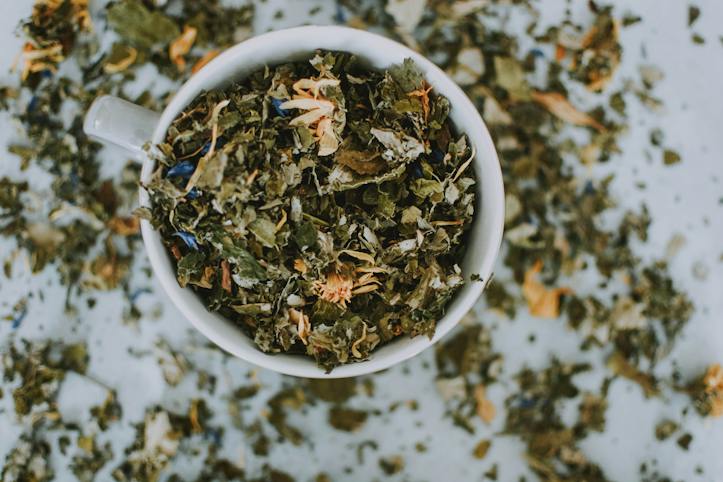Fasting Tea Benefits: Unlocking Herbal Wellness

Understanding the Health Benefits of Herbal Fasting Tea
When it comes to enhancing the fasting experience, herbal fasting tea plays a pivotal role in supporting the body and mind. Fasting, an age-old practice of abstaining from food for a specific period, can be a challenging endeavor. Incorporating herbal teas offers a soothing and healthful complement to the fast. In this educational piece, we will delve into the various benefits and considerations of herbal fasting tea.
The Role of Herbal Tea in Fasting
Fasting has been associated with a multitude of health benefits, from improved metabolic function to heightened mental clarity. The addition of herbal fasting tea can enhance these benefits by providing essential nutrients and antioxidants without breaking the fast. Herbal teas are naturally low in calories and can be consumed without adding sugar or milk, making them an ideal choice for those looking to maintain a fast.
Types of Herbal Teas Suitable for Fasting
Several herbal teas are favored for fasting due to their health-promoting properties. For instance, green tea is renowned for its high antioxidant content, while peppermint tea is appreciated for its digestive soothing effects. Other popular options include ginger tea for its anti-inflammatory properties, chamomile tea for relaxation, and dandelion tea for detoxification.
Navigating Caffeine in Herbal Teas
Although herbal teas are generally considered caffeine-free, it’s important to note that some, like green tea, contain caffeine. Those fasting should be aware of their caffeine intake, as it can affect hydration levels and cause restlessness or irritability. Opting for decaffeinated versions or naturally caffeine-free herbal teas like rooibos can help mitigate these concerns.
Preparation and Consumption Tips
Proper preparation of herbal fasting tea is essential to maximize its benefits. Steeping the tea for the recommended amount of time ensures that the flavors and nutrients are adequately extracted. Additionally, fasting individuals should be mindful of their fluid intake, as herbal teas can contribute to daily hydration goals.
Combining Herbs for Enhanced Effect
Blending different herbs can create a synergistic effect, where the combined properties of the herbs are more powerful than when consumed individually. For example, combining ginger with lemon balm can both soothe the stomach and uplift the mood.
Considering the variety of herbal teas available, it’s worthwhile to experiment with different blends and flavors to find the most enjoyable and beneficial combination for one’s fasting regimen.
Limitations and Considerations
While herbal fasting tea can be a valuable addition to a fasting protocol, it’s essential to consider individual health conditions and dietary restrictions. Some herbs may interact with medications or may not be suitable for those with certain health concerns. It’s always recommended to consult with a healthcare professional before incorporating a new herbal tea into your diet, especially during a fast.
Herbal Tea and Intermittent Fasting
Intermittent fasting, a popular fasting method that cycles between periods of eating and fasting, can also benefit from the inclusion of herbal tea. Drinking herbal tea during the fasting window can help curb appetite, provide a comforting ritual, and supply the body with beneficial compounds.
In summary, herbal fasting tea offers a natural and effective way to support the body during a fast. By choosing the right herbs and preparing them with care, individuals can experience heightened wellness and make their fasting journey more enjoyable.
Discover the benefits of incorporating herbal fasting tea into your fasting routine, with tips on preparation and optimal consumption for wellness.
Recent Posts
- Fasting Tea Benefits: A Look at Alternatives to White Yogi Healthy Tea
- Fasting Tea Benefits After White Yogi Discontinuation
- Fasting Tea Benefits: What Happened to White Yogi Healthy Fasting Tea?
- Fasting Tea Benefits – What Happens When Discontinued?
- Unlocking Alternatives to White Yogi Healthy Fasting Tea
- Fasting Tea Benefits and Alternatives When White Yogi Healthy Brand Discontinued
- Fasting Tea Trends: The Discontinuation of White Yogi Healthy Tea
- Fasting Tea Discontinued: What’s Next for White Yogi?
- Fasting Tea Benefits and Alternatives to White Yogi Healthy Fasting Tea
- Fasting Tea Benefits: The White Yogi Healthy Brand Discontinuation